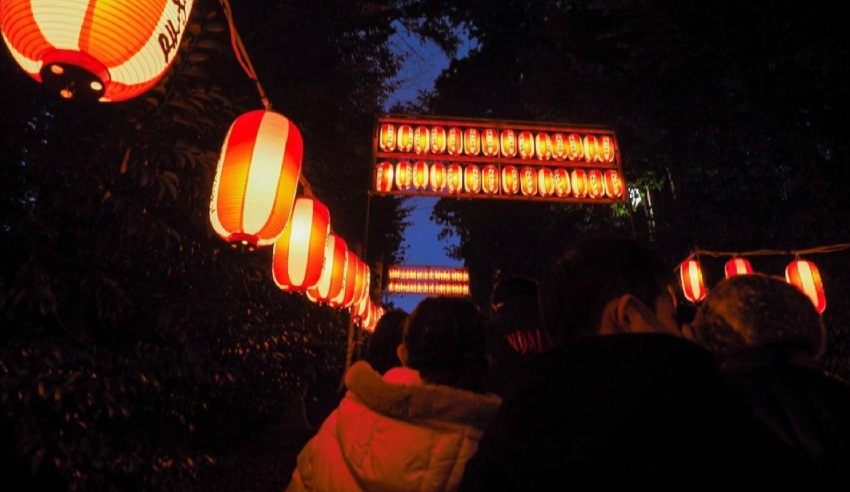Cultural and life experiences can provide you with a wide range of legal skills and greatly impact the type of lawyer you become, this lawyer and PhD student says.

Image Credit: instagram.com/ameliemewrphotography/
Emily Muir is a lawyer, PhD student and photographer, among many other things. She spoke to Lawyers Weekly about how her PhD research has bolstered her legal skills, her artistic direction and what she’s learnt along the way.
“Mentoring and teaching is a huge part of being a lawyer and I began to think about my long-term goals. Questions like; how can I teach and mentor new lawyers? And how can I contribute to a wider understanding of law?” she said.
“I was thinking beyond clients, beyond application of law and into the development and understanding of law.”
Ms Muir’s PhD involves a 10-year research plan that explores different cultures and how they perceive different aspects of law. She’s currently exploring Japanese cultural artefacts and the Japanese cultural understanding of law, justice and the legality of child protagonists.
“My honours paper was very similar with a focus on my own culture, India. There’s so much we can learn about the law by sharing cultural narratives with each other,” she explained.
“This is the larger research topic that I plan to spend my legal career attempting to understand and I hope that through understanding humans from these different perspectives we can more cooperatively – both internationally and domestically – apply rights or restrictions in law that better understand this diversity.”
Ms Muir recently returned from Japan, where she was a language teacher whilst analysing the cultural artefacts at the centre of her PhD. She is also a keen photographer, and used her skills to document her daily life.
“Using my skills to document daily life and my experiences gave me personal data to springboard my PhD and give me perspective,” she said.
“I went to museums and explored the Jumon period, participated in Japanese festivals, explored different cities and their history, looked at the contrasts between coastal cities and metropolitan cities, looked at the way Japan has built its monarchy and explored its pre-western history, looked at the way samurai were important to society, explored big castles, explored the history of different temples and its significance to Japanese people, experienced four seasons for the first time in my life and even did a little stop in South Korea.
“Essentially, everywhere I went, even my daily life I documented and thought about how culture and history build a junction where narratives of law are important and prominent. In some cases, how these different legal narratives are crucial to the lives of people in the community.”
Whilst at university, Ms Muir also studied a bachelor of arts in addition to law, majoring in screen and film production, which gave her the technical skills to start getting accepted into exhibitions and documenting more of her life.
“BizartX at QUT helped me to break out a little more and I was able to participate in an industry exhibition with Urban Artist Projects (UAP),” she said.
“My artistic direction is law and culture. Many of my pictures seek out moments in a similar way, the moments when life, law and justice meet.”
Aside from her understanding of Japanese culture, and the cultural artefacts at the centre of her paper, being shaped by Ms Muir’s experience in Japan, she said she learnt a lot of valuable lessons that can be applied in a legal environment.
“I learnt that values are different to different people. This is applicable to a legal career because we interact with different clients and every client will have a different value system, sometimes that system is based on a person’s cultural upbringing or environment,” she said.
“Learning about other cultures helps us become better communicators and understand the value systems of others.
“There are other ways that this kind of experience is important to a legal career. Understanding governments and their interactions is another skill that could be applicable to a legal career. Which I hope to use at some point and work within a government department.”
Aside from wanting to work in government, Ms Muir hopes to publish the first chapter of her PhD, as well as an art book of her photography from Japan and gain more recognition for her work, as well as continue her career, both in law and academia. Unsurprisingly, the biggest thing she’s learnt along the way is that there are many different pathways to legal success.
“Law is about people; it is a social science; it’s about helping people with the problems they may face in life. Our experiences of life can help us to better understand our clients, governments, organisations, and businesses which can help us make recommendations and give advice,” she said.
“When I entered the legal profession, I had a very focused view of how I wanted to become a great lawyer. Things didn’t go to plan, and I got scared at the beginning. The best advice I can give is let life get in the way and talk to people. There are many skills not learnt in law school that can be applied to a legal career.”

Lauren is the commercial content writer within Momentum Media’s professional services suite, including Lawyers Weekly, Accountants Daily and HR Leader, focusing primarily on commercial and client content, features and ebooks. Prior to joining Lawyers Weekly, she worked as a trade journalist for media and travel industry publications. Born in England, Lauren enjoys trying new bars and restaurants, attending music festivals and travelling.